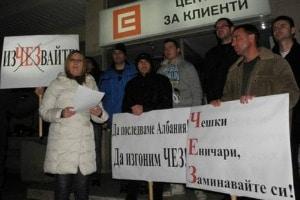Statement by President von der Leyen at the joint press conference on the global mRNA technology transfer hub
Thank you very much.
Indeed, I think that this is a symbol today for the new partnership we have embarked on. And we have been, indeed, talking a lot about producing mRNA vaccines in Africa. But I think that this goes far beyond. This is mRNA technology designed in Africa, led by Africa, and owned by Africa, with the support of Team Europe. And indeed, we are so deeply convinced of the potential you, dear Cyril, were just describing, that, from the very first moment on, we have backed this initiative without any hesitation, and teamed up with you and the WHO to set up this technology transfer hub. I think that the emphasis has to be on ‘technology transfer’.
We invest EUR 40 million, as the Commission, with Germany, France and Belgium, because we are deeply convinced that it is the right way to go. And indeed, I consider this not only as a major step forward in the fight against the pandemic but also as a major step forward in Africa’s strategic sovereignty when it comes to vaccines. We all know the state of play today. Today, of all the vaccines administered in Africa, 1% is produced in Africa – of all the vaccines. And rightly so, the goal is in 2040 to have reached a level of 60% of vaccines produced in Africa, that are administered in Africa. And this is the precondition.
And here, indeed, I think, dear Cyril, that it is important that, as you said, we limit with this technology transfer the profitability of the IP owners, that is the companies – that was the point you were blaming – while protecting a very precious good. And this is the intellectual property, what scientists have developed. And here, I think that we can find a bridge.
The goal is really to make sure that the technology is transferred, and dismantled, and shown in full scope. And for that, we think that compulsory licencing with limited, deeply cut profits might be a bridge. I see, too, that at the technology transfer hub, at the moment being, we are not there yet because I heard very well that, you, Dr Tedros, my friend, said: ‘publicly available information’. This is not enough. There needs to be the in-depth information about a technology. So we have a common goal. I think that we are able to manage to create the regulatory frame that is necessary to really make it happen that the strategic sovereignty of Africa concerning vaccines is being developed and given.
There is a second point that is outstanding with this hub and spoke model, that is that it is not only about science, it is a lot about skills, it is about high-quality jobs. And indeed, it was mentioned, it is about the regulatory environment for the whole of Africa, that the African Union, for example, is now developing with the African Medicines Agency and the African CDC. You see the complexity of the project. You see the groundbreaking initiative, a completely new approach towards an attitude where the sovereignty of science is given and is protected, while Africa has full access and full ownership – this is so important – of the technology and then the goods that come from that. So many thanks for that. It is a perfect example of what we are able to do when we join forces.
Thank you.






